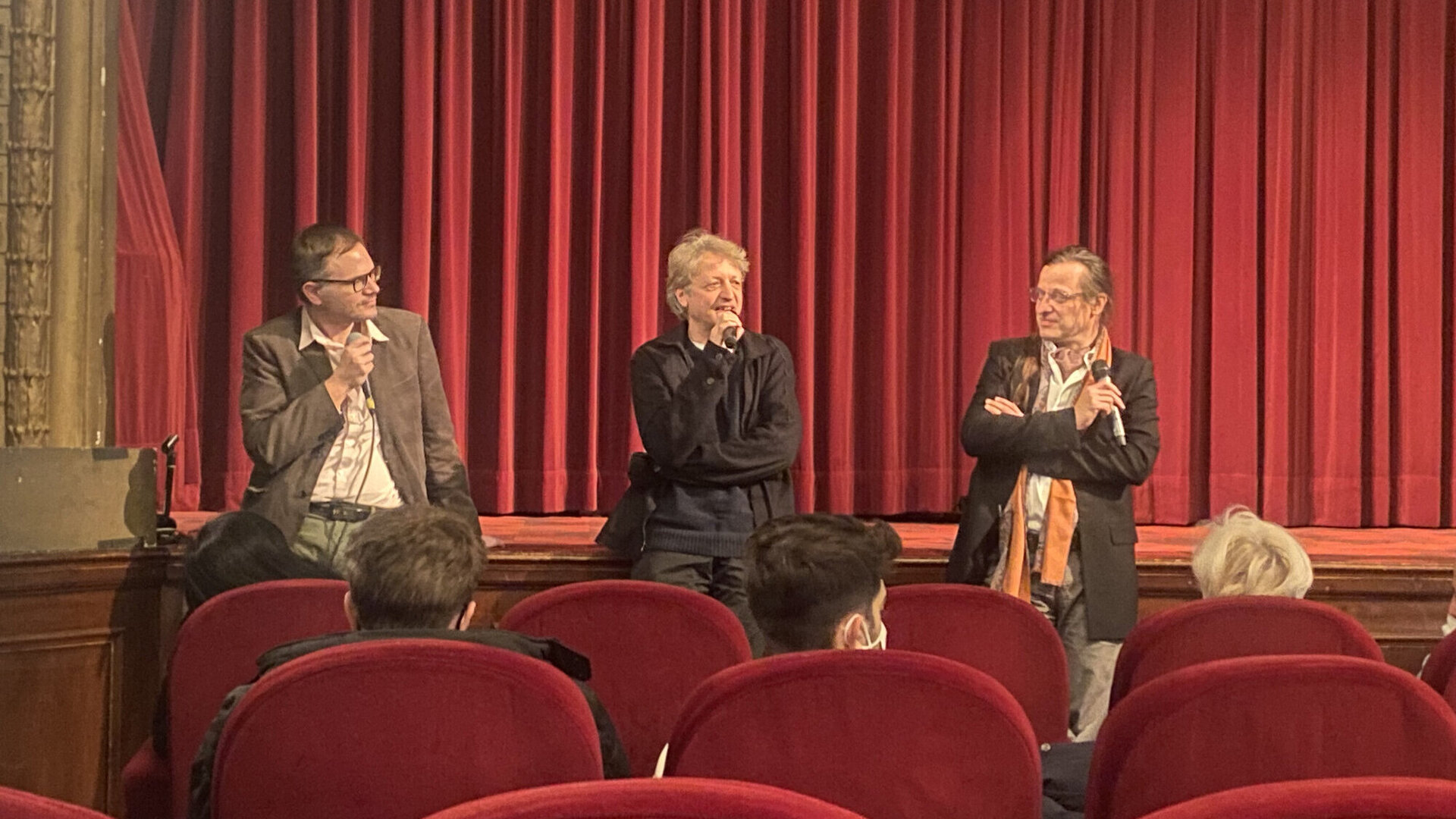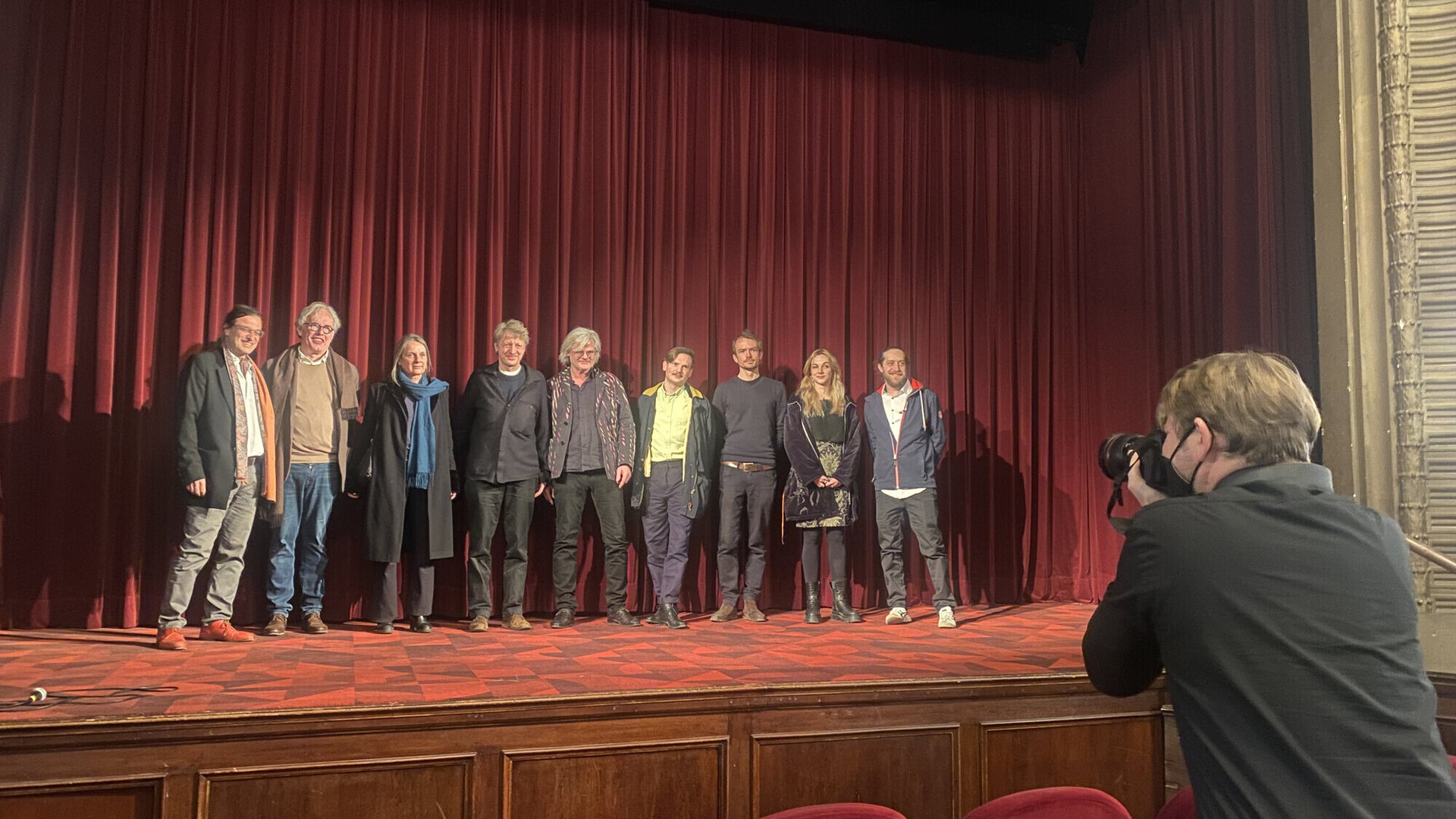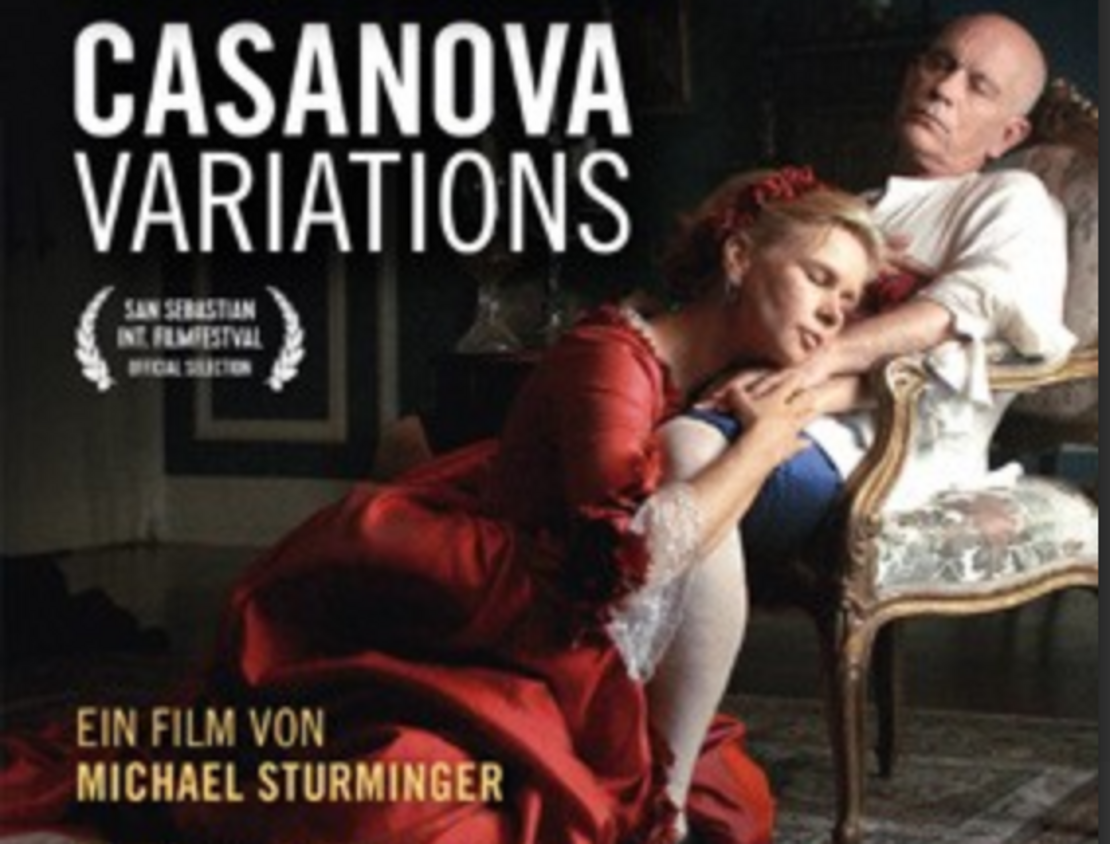It takes luck to know John Malkovich, to have worked with him in theatre before and to have a full-blooded actor opposite the Hollywood star who is passionate about theatre and has become a friend in the meantime. The lucky one is Michael Sturminger, born in 1963, who is best known for his theatre directing work and whose forays into film have been rare. He is particularly lucky when he manages to combine both film and theatre. The stage play "The Giacomco Variations", developed together with John Malkovich and the composer and conductor Martin Haselböck, was performed around 150 times between Tbilisi and Santiago de Chile and filmed in 2014 under the title "Casanova Variations". Sturminger received a Golden Romy for the screenplay, the audience in San Sebastian was delighted at the world premiere, but hardly more than 5,000 people saw the film in austrian cinemas. Since Tuesday, the number has increased a lot - the Metro Kinokulturhaus was completely sold out.
The film is probably exemplary for the work of Amour Fou, which was founded 27 years ago by Bady Minck and Alexander Dumreicher-Ivanceanu. Both regard themselves as artists; Dumreicher-Ivancenau even spoke of a radical understanding of art at the opening of the retrospective. His mother, scientifically active in the field of sustainability and communication, and his father, a much respected theatre director and writer, influenced son Alexander and his sister (who is now responsible for documentaries at Amour Fou) from an early age, as he himself told us. He has also known Michael Sturminger since childhood, not only because he was his father's assistant director. Bady Minck from Luxembourg studied sculpture at the Academy and experimental film at the Angewandte in Vienna. Alexander started in film as a best boy and assistant, among other things as Bady Minck's assistant director - in 1995 the two finally founded Amour Fou, first in Luxembourg and initially as an association, and in 2001, together with Gabriele Kranzlbinder and Virgil Widrich, the Amour Fou - Vienna branch. The big breakthrough came in 2003 when four films they produced were invited to Cannes ("Pas de Repos pour les braves" by Alain Guiraudie, "Struggle" by Ruth Mader, "Im Anfang war der Blick" by Bady Minck and "Fast Film" by Virgil Widrich). In 2017, both received a Golden Romy as producers for Dieter Berner's Schiele film "Tod und Mädchen" and most recently Evi Romen's debut film "Hochwald" went through the roof, so to speak, with critics, several festivals and nominations for the Austrian Film Prize; currently Stefan Ruzowitzky's "Hinterland" is one of the favourites for this year's film prize. The story of detective superintendent Perg, who returns home as an officer from captivity after the First World War to a completely changed Vienna and an entirely new Austria, with new fools joining the old fools of the former upper class, is told in such a visually radical way that the film seems like a dystopian SF thriller. Almost as if the good old days wanted to tell us how terrible their end will be for the country and its people. But back to the retrospective, the opening film "Casanova Variations" can also be seen as the derniere on 6 April, in between the Filmmuseum shows about a quarter of the Amour Fou's oeuvre of more than 100 films (including "Angelo", "Hochwald", "Hinterland" or "Styx"). Bady Minck was unfortunately not present at the opening; the Corona virus forced her into quarantine. The "Long Night of Bady Minck" next Friday (18 March) is dedicated to her film work as a director - hopefully with the recovered artist in person. Among others, the film from the legendary Cannes year "In the Beginning was the Gaze" and the internationally celebrated, cinematic work of art "Mappamundi" will be shown.
Alexander Dumreicher-Ivanceanu tried to estimate it and he came up with about 80 female directors with whom Amour Fou has worked, with quite a few also on several projects. Evi Romen, whose debut film "Hochwald" was produced by Minck and Dumreicher-Ivanceanu, had previously established herself as an editor and so it has come full circle, because, as Alexander stated in the audience discussion after "Casanova Variations", Evi Romen's editing still fascinates him now, eight years later. That and the intelligent play of Giacomo Casanova oscillating between the different levels - besides a brilliant John Malkovich, Veronica Ferres plays and Florian Boesch and Jonas Kaufmann sing, among others - keeps you on your toes, the arias taken from various Mozart operas underline the ever deeper penetration into the world of the supposedly world's best seducer of mankind. Lastly .... no no spoiler. Just watch it. And become a member, of the film archive club.
And congratulations to the Amour Fou - it takes someone to imitate the two of them, not only to understand film as art so consistently for so long, but also to be able to realise it so uncompromisingly in part. Chapeau!
P.S.: It should not go unmentioned that Bady Minck and Alexander Dumreicher-Ivanceanu have also been involved in film beyond the Amour Fou. By way of example, it should be mentioned that together with Hans König's poly-film, whose animated logo for the opening credits was created by Bady Minck, they discovered the Wallace & Gromit films of Nick Parker for the wider cinema and that they were involved in the founding of the now well-established WorldSales, the outlook-film. Alexander was also chairman of the film and audio industry section of the wko-Vienna and has been federal chairman of the film and music industry association in the Federal Economic Chamber since 2020.


